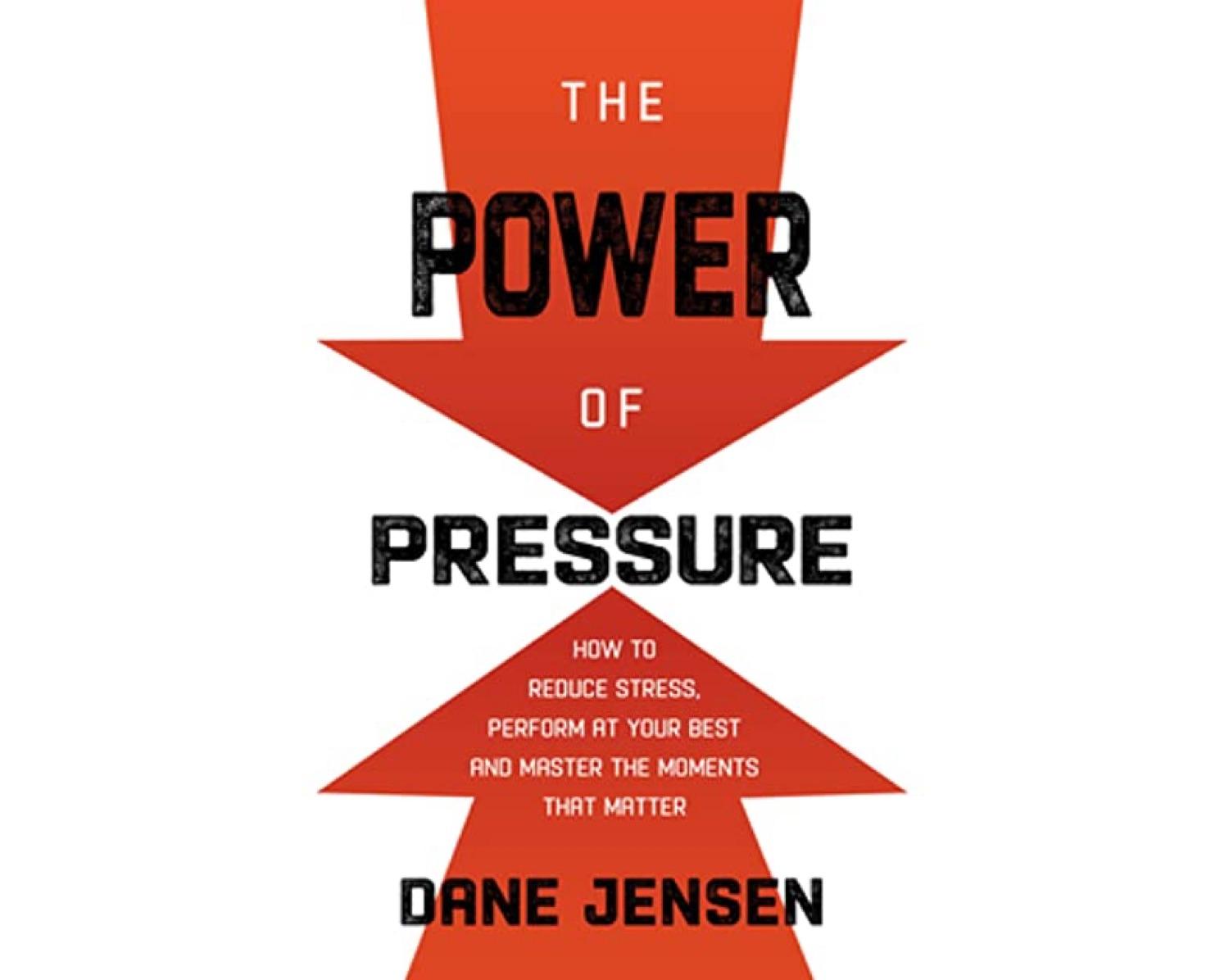Managing Star Performers in High-Pressure Situations
Curated from: hbr.org
Ideas, facts & insights covering these topics:
15 ideas
·120 reads
8
1
Explore the World's Best Ideas
Join today and uncover 100+ curated journeys from 50+ topics. Unlock access to our mobile app with extensive features.
Success Breeds Confidence And Confidence Breeds Pressure
It is generally accepted that success breeds confidence, and confidence increases the ability to handle pressure. And yet, as the experiences of Simone Biles and Naomi Osaka have shown this year, the story is not so simple. While success can indeed breed confidence, it can also increase visibility, multiply expectations, and raise pressure to unhealthy levels over time. When you are leading star performers, you need to recognize the double-edged nature of success and help them do two things: keep the stakes of failure in perspective and manage the volume of demands for their time.
3
22 reads
The Star Performers Carry The Pressure They Feel
Even the greatest performers feel pressure more than you might think. Consider the penalty kick in soccer. The stakes for each shot are immense, and players are expected to score; a miss is considered a failure. Beyond losing the game, players who miss high-profile shots often face vitriolic abuse from so-called fans, as did three Black members of England’s team that lost to Italy’s team in the European soccer championship in July 2021.
3
6 reads
… And The Pressure They’re Laden With
So, if you’re the coach, you want your superstars taking these shots, right? Not necessarily. Researcher Geir Jordet studied 366 kicks from 37 penalty shootouts held at the world’s largest soccer tournaments. His counterintuitive finding was that superstars — those who had won a major international award like FIFA’s Player of the Year — performed worse than those who had not. The superstars scored only 65% of the time versus the 74% overall average. Even more striking, they scored far less than players who would later go on to win the same awards. These “future stars”’ scored 89% of the time.
3
4 reads
Status Can Be A Burden
In short, players who have the skill but not yet the status that comes with winning a major award performed far better than those who had both the skill and the status. Status, it turns out, can be a burden.
3
9 reads
Research On Pressure
Understanding the burden of status requires understanding what creates pressure.
Dane Jensen, author of the book “The Power of Pressure” has, for the past three years, conducted research into pressure with hundreds of high performers in sports, business, medicine, and the military, including in-depth interviews with Olympic and Paralympic athletes who have collectively won 21 medals, 13 of them gold.
3
9 reads
The Origins And Power Of Pressure
Jensen has found that pressure is a function of three things:
- The importance of a situation’s outcome
- The uncertainty of the outcome
- The volume of tasks, decisions, and distractions surrounding the outcome
All three are affected by success and status, but two are particularly acute: a ratcheting up of the importance attached to the outcome and a dramatic rise in the volume of tasks, decisions, and distractions facing the performer.
4
9 reads
The Champion And The Human Being
Following her decision to withdraw from the Olympics’ team final in gymnastics, Simone Biles laid bare exactly how high the stakes were for her: “We hope America still loves us,” she said. At her level of visibility and adulation, this was not just about the very real physical stakes of performing complex maneuvers 10 feet in the air at speeds of up to 150 rpm; it was also about the expectations of 300 million people, her identity as a champion, and the very basic human need to be loved and respected.
3
6 reads
The Stakes And Yourself
As success and visibility accumulate, the stakes in high pressure situations expand from tangible things like medals or compensation and begin to encompass existential things like identity and self-worth. Leading or coaching highly successful performers through a high-pressure event requires reducing the overwhelming baggage they can attach to failure. You can start to accomplish this by asking one key question: What are the things that are the most important to you — that are integral to your being — and won’t change regardless of the outcome?
3
8 reads
Identify What Is Not At Stake - Challenge, If You Must
When Norwegian speed-skater Johann Koss found himself overwhelmed by pressure in the lead-up to his first Olympic Games in 1994, his sports psychologist did just that. The psychologist methodically worked through with him all of what wasn’t at stake: his future career as a doctor, Norway’s overall success at the Olympics, and so on. It helped Koss regain his perspective and deliver three all-time great performances in which he won three gold medals and established three world records in three events.
3
4 reads
No Stakes, No Costs
As you work through the stakes with someone, play the role of challenger. For example, at a key moment Koss’ sport psychologist asked, “Do you think the Norwegian people care whether you or another Norwegian win a medal?” This push caused Johann to admit that, no, the Norwegian people would be fine either way — their happiness wasn’t at stake. The cost of failure dropped.
3
4 reads
When Under Pressure, Reduce The Stakes Of Failure
Such questions force us to challenge our view of what’s in play when confronting a high-pressure challenge and thus broaden our perspective to see those stakes in balance alongside all the things that are not affected by our performance.
3
4 reads
As Success And Status Build, So Too Does Volume
On May 26, 2021, tennis phenom Naomi Osaka announced on Twitter that for the sake of her mental health she would not do any press interviews at the French Open. After a tone-deaf response from the organizers , she pulled out of the tournament five days later.
The volume of tasks and distractions that surround performance can dramatically increase pressure. And as success and status build, so too does volume. The requests for Osaka’s time at the French Open in 2021 were vastly greater than they were in 2016 during her first Grand Slam event.
3
3 reads
Increase In Volume - Choices To Make And Questions To Ask
In response to the increase in volume, Osaka — like all of us — had two choices: accommodate more or eliminate the volume that was creating the most pressure. She chose the latter, which is exactly the right response to pressure that comes from volume.
As leaders, we can aim higher than the French Open organizers and hold more productive discussions with our stars to help them manage the volume they face. If a star subordinate is feeling overwhelmed, consider sitting down and looking at each of the items demanding their time and asking:
3
10 reads
Sources Of Pressure Evaluation And Filtering
- Is this helping or hurting mperformance on what matters most? This is the key filter for sources of pressure that are ancillary to the core matter at hand (like winning a tennis tournament).
- Will this help you grow in a way that matters to you? Growth gives meaning to pressure. Preserving the pressure that is helping move us forward is vital, even if it is uncomfortable.
- Will eliminating a particular source of pressure lead to regret? There are some sources of pressure that don’t help us grow and hurt performance but ultimately must be endured in order to stave off regret down the line
3
8 reads
Superstars And Our Own Stars
If something is hurting performance, is detached from growth, and is not linked to regret, it’s a source of pressure that likely should be eliminated or redirected from your stars to other team members.
Few of us will ever know the pressure of carrying the expectations of 300 million people into a physically and mentally demanding environment. But, through thoughtful conversations that aim to keep importance in perspective and simplify volume, we can help our own stars carry the burden of success a little more lightly.
3
14 reads
IDEAS CURATED BY
CURATOR'S NOTE
A reminder that pressure is not only felt, it is also laden - sometimes we are laden with it, sometimes we lade it on others
“
Xarikleia 's ideas are part of this journey:
Learn more about personaldevelopment with this collection
Identifying the skills needed for the future
Developing a growth mindset
Creating a culture of continuous learning
Related collections
Similar ideas
11 ideas
The Best Ways to Cultivate Your Mental Strength
verywellfit.com
3 ideas
Leading under pressure
strategy-business.com
100 ideas
Inspirational Sports Quotes to give you MOTIVATION
everydaypower.com
Read & Learn
20x Faster
without
deepstash
with
deepstash
with
deepstash
Personalized microlearning
—
100+ Learning Journeys
—
Access to 200,000+ ideas
—
Access to the mobile app
—
Unlimited idea saving
—
—
Unlimited history
—
—
Unlimited listening to ideas
—
—
Downloading & offline access
—
—
Supercharge your mind with one idea per day
Enter your email and spend 1 minute every day to learn something new.
I agree to receive email updates

